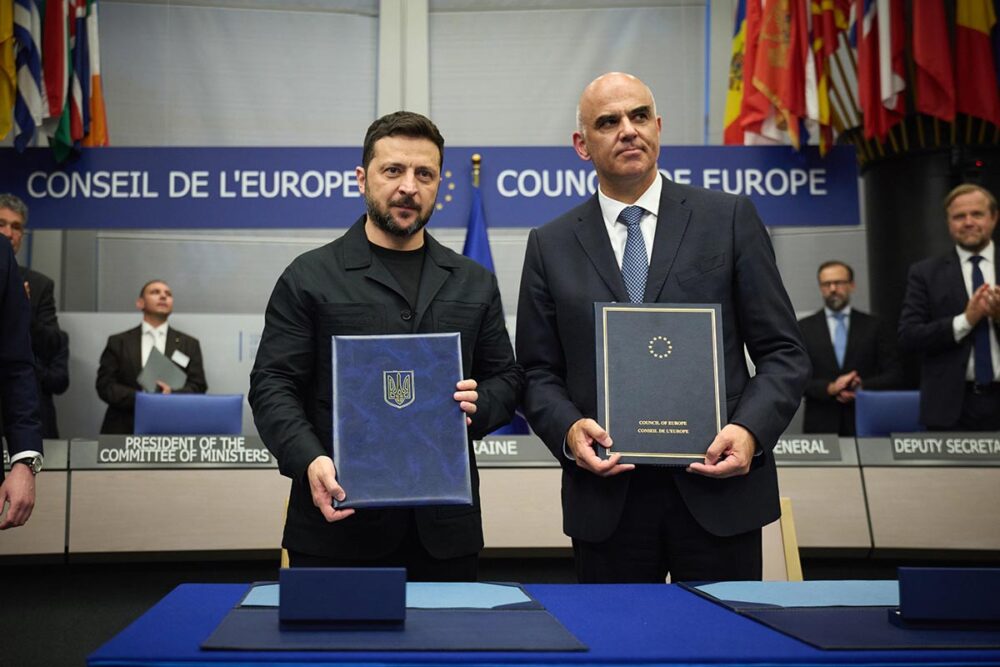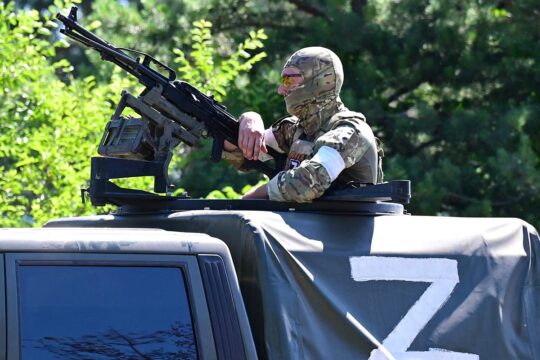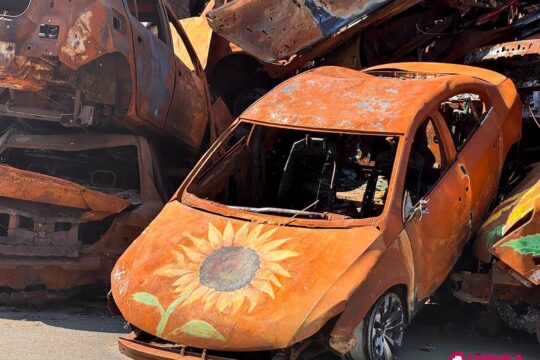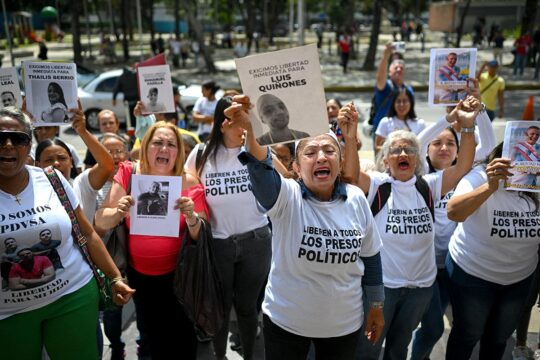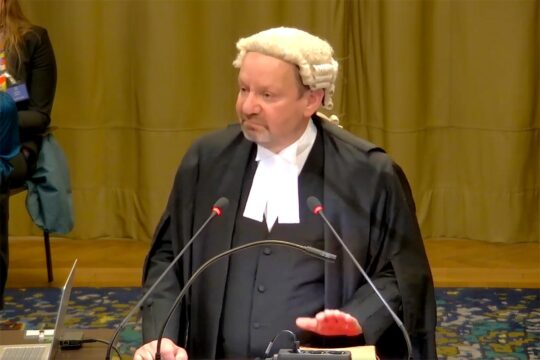In 2022, right after Russia launched its full-scale attack, a main objective of Ukraine was to gather evidence of war crimes committed by the Russian Federation. “It was at that time that a joint investigation team consisting of representatives from European countries and Ukraine was established at Eurojust. This team later became a separate unit focused on documenting the crime of aggression. However, a parallel course was being pursued by the Ministry of Foreign Affairs. They initiated the creation of an international judicial authority to prosecute this crime,” explains Andrii Leshchenko, Deputy Prosecutor General of Ukraine. “We believe that aggression is the primary evil that has enabled hundreds of thousands of war crimes to be committed in Ukraine and beyond its borders against prisoners of war and civilian captives. That is why the creation of a separate international judicial organ that could assess and bring to justice those guilty of committing the crime of aggression was primarily the work of our Ministry of Foreign Affairs.”
The path to establishing the Special Tribunal was not easy for Ukraine, says Maria Mezentseva-Fedorenko, head of the Ukrainian delegation to the Parliamentary Assembly of the Council of Europe (PACE). “We faced such ignorance in international law. Colleagues at the highest level said it was impossible. And, typically, in international armed conflicts, such tribunals were established after peace was restored.” So they “worked with highly respected experts who have a direct understanding of the crime of aggression as a cardinal and commanding offence,” Mezentseva-Fedorenko says. And three years later, on 25 June 2025, while the war is still raging, Ukraine’s president Volodymyr Zelenskyy and Secretary General of the Council of Europe Alain Berset signed an agreement in Strasbourg on the establishment of a Special Tribunal for Russia’s crime of aggression against Ukraine. “In other words, we are ahead of our time,” says Mezentseva-Fedorenko.
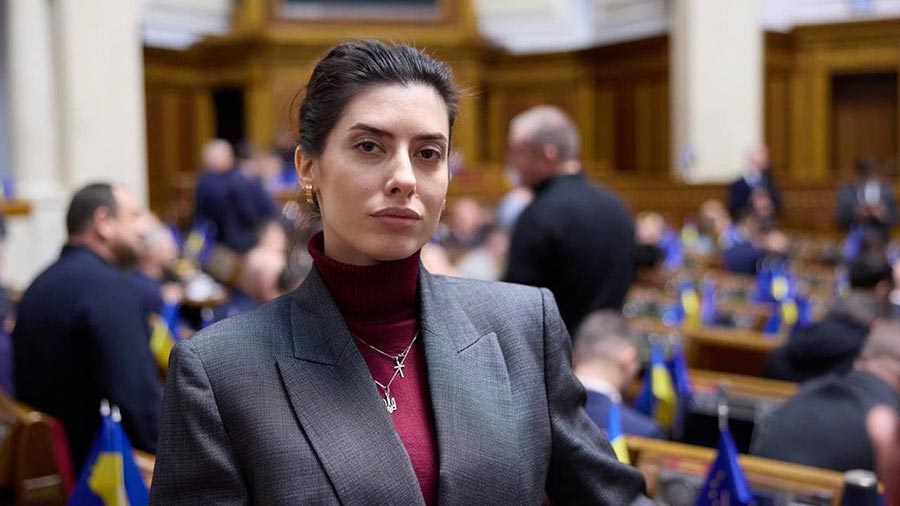
No start date for the work yet
As of 11 November 2025, no specific building, administrative staff or budget has been allocated for the Special Tribunal. The only thing Ukraine knows for sure is its location. The tribunal will be in The Hague, Netherlands.
“We are currently waiting for our partners to join the enlarged partial agreement on the steering committee and agree on the budget. After that, it will be possible to launch the Special Tribunal. It is very important that the EU has already allocated €10 million to the preliminary group, which can begin groundwork for the Special Tribunal to be launched as soon as possible,” Iryna Mudra, Deputy Head of the Office of the President of Ukraine, told Suspilne.
“The main task of this money is to prepare the first, operational level for the tribunal to begin its work,” adds Mezentseva-Fedorenko. “This means a physical office and all the administrative preparations. Next is the budget analysis. We are currently working together to analyse how much money will be needed for this launch. We are moving towards this step by step. [Russia’s president] Putin really does not want this and is afraid of it. He has added all his colleagues from the PACE who voted for the agreement on the Special Tribunal to the sanctions lists.”
The media reported that the preliminary date for the start of the Special Tribunal’s work was 2026. The Council of Europe’s Media Department did not confirm this information. “These matters are still under consideration,” they say. “Of course, we would like the Special Tribunal to begin its operational activities in 2026. Ukraine is doing everything it can to achieve this,” Anton Korynevych, Ambassador-at-Large of the Ministry of Foreign Affairs and Ukraine’s agent at the UN International Court of Justice, points out. “But since the Special Tribunal is an international institution, it requires efforts not only from us, but also from our international partners.”
Sorting out membership, and the cost that comes with it
As for how many countries need to join the Special Tribunal for it to start working, there are no such documented requirements, Korynevych explains. “But there is an opinion that there should be no fewer than 25-30 countries, in particular from the Council of Europe region, with states from other regions also likely to join.” According to Mezentseva-Fedorenko, they are working with these “other countries” at the parliamentary level of the PACE (which includes 46 countries),to ensure that as many participants as possible join the enlarged partial agreement. “It is legally stipulated that there is no limit. That means, Jamaica, Fiji, Japan, Australia, anyone who adheres to the very simple statute of the tribunal, which we established on the basis of international legal documents, can join. We are doing everything possible to ensure that we are represented as widely as possible geographically. This includes countries in Africa, the Middle East and the Far East. It is very important for us to showcase this capability, and it takes a little time.”
The calculation of each country’s contributions, Mudra explains, will be based on the Council of Europe’s contribution scale. The exact amount will depend on the number of states to join the Special Tribunal’s steering committee. Currently, the enlarged partial agreement is the main obstacle before the Special Tribunal could open its doors and staff could physically enter the premises. “Daily work is currently being carried out to ensure that states join this agreement on the Special Tribunal’s steering committee as soon as possible. It needs to be submitted to the Council of Europe’s Committee of Ministers for approval,” Korynevych says.
Ukraine has ratified the Statute of the Special Tribunal, but other countries do not need to do so, he adds, explaining that this is a bilateral agreement between Ukraine and the Council of Europe. But unlike the statute, the enlarged partial agreement on the steering committee of the Special Tribunal must be adopted and ratified by Ukraine’s partner states, Korynevych says. How much time will this take? Neither he nor any of our other interlocutors know yet.
“The Council of Europe’s regulations require at least 16 member states to join before a new partial agreement can be concluded. In the case of the Special Tribunal, more than 16 member states may be needed to ensure the political legitimacy and financial sustainability of the case,” the Council of Europe’s Media Department told Suspilne.
The financial aspect of participation in the Special Tribunal is one of the most significant, says Andrii Kostin, the ambassador of Ukraine to the Kingdom of the Netherlands. According to him, countries will join based on their financial capabilities.
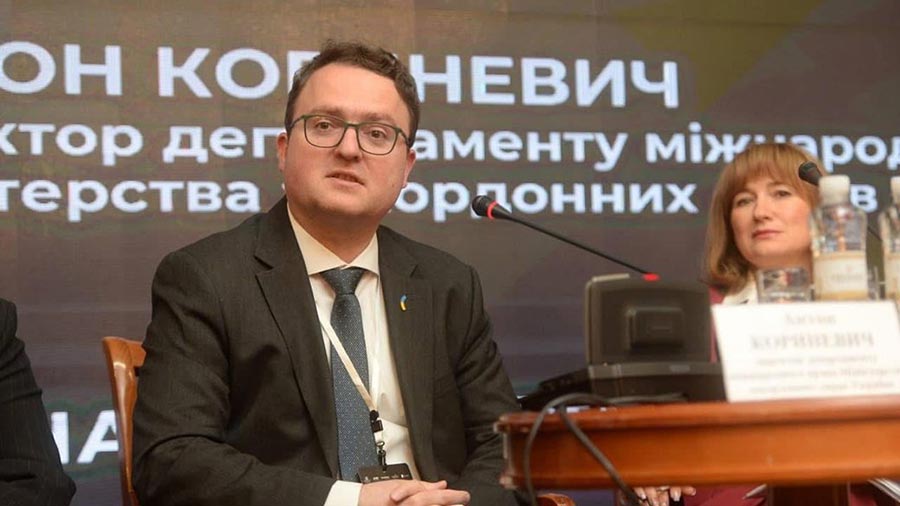
Gathering the evidence
Meanwhile the Prosecutor General’s Office of Ukraine is collecting and preserving all the necessary evidence so that it can be immediately submitted to the Prosecutor’s Office of the Special Tribunal once it is launched, Leshchenko says. “Indeed, the Special Tribunal does not yet exist, but a massive groundwork has already been laid for it to start functioning. The evidence basis for this crime [of aggression] will be slightly different from the evidence basis that is being gathered for war crimes committed on the battlefield or in places of imprisonment. However, the sources of this evidence are the same.”
Judicial and forensic expertise, information from open sources, public statements by senior political and military leaders of the Russian Federation, reports by international organisations, etc.: “All of this combined constitutes evidence that will be considered. The testimony of Russian prisoners of war can also be used as evidence of the crime of aggression, especially in the early stages of the full-scale invasion. Even information from intelligence agencies, which can be obtained during the investigation, can be used as evidence in international court proceedings. Therefore, we are dealing with an enormous amount of evidence that is already available and an enormous amount of evidence that still needs to be gathered,” continues Leshchenko.
All this evidence is currently being gathered within the framework of a single criminal proceeding – that of the crime of aggression. But if such evidence is gathered in other criminal proceedings, “for example at the regional level by the prosecutor’s offices of Chernihiv or Sumy regions,” it can all be submitted to the Prosecutor’s Office of the Special Tribunal, notes Leshchenko. Kyrylo Puhachov, prosecutor of the Chernihiv Regional Prosecutor’s Office, believes that every instance of indiscriminate attacks on civilians or civilian facilities is a war crime, and that these are all integral parts of the greater crime of aggression committed by the Russian Federation. “We have been actively working on this since 2022 and are documenting everything so that it can be subject to further proceedings. The only question is how it will be structured, we will see. What is certain is that the crimes committed by the Russian army in Chernihiv, Kyiv and other regions of our country will be taken into account, as they are all forms of the crime of aggression.”
Ukraine’s special task
“We are investigating the facts of the preparation, planning, decision-making and waging of an aggressive war against Ukraine, in accordance with our national legislation,” says Leshchenko. But the Eurojust joint investigation team “includes investigators and prosecutors from other European countries who are gathering evidence specifically related to the crime of aggression. Ukraine is not the only country working to gather evidence and then submit it to the Prosecutor’s Office of the Special Tribunal. All these procedures are regulated by the national legislation of the countries involved in gathering such evidence. If it is gathered in accordance with the country’s criminal procedure law, it can be used as evidence, including in international courts.”
Such contribution can be provided without physical presence in Ukraine. The Deputy Prosecutor General of Ukraine explains it by the fact that the amount of information currently available in open sources is “quite extensive”. “Russia’s aggression against Ukraine is the most documented crime in recent times. We see a large number of statements by public officials in open sources, videos taken by victims, witnesses, and survivors, which are then posted online. Members of the Russian Armed Forces themselves post such information. An enormous area of work is the analysis of Russian legislation in order to establish, again from a legal point of view, the authority of a particular person over the processes taking place in the country, and to confirm that they have the leadership qualities and abilities to do so.”
However, since all direct military actions are taking place on Ukrainian territory, Ukraine’s task is much greater than that of its partners. “Objectively, we have more information and intelligence, and the Ukrainian team working on documenting and gathering such evidence is also larger. The crime of aggression has certain characteristics, such as severity, scale and nature. When it comes to nature, it is a war of conquest. When it comes to scale, the full-scale invasion itself has shown it. When it comes to the severity of this crime, we are already documenting the consequences of this aggression: the death of our military personnel and civilians, the destruction of cities and entire settlements as a result of Russia’s actions. All of this combined indicates that Russia is committing a crime of aggression and that its representatives are committing aggression.”
According to the Council of Europe’s Media Department, the Prosecutor General of Ukraine will be the one to decide on the priority of criminal cases, information, or evidence to be submitted by Ukraine to the Special Tribunal. Leshchenko says Ukraine has the right to initiate proceedings against a specific person and submit relevant evidence to the Prosecutor’s Office of the Special Tribunal. “The Special Tribunal’s Prosecutor will then assess the materials submitted and also independently decide whether there are sufficient grounds to continue the investigation. The Special Tribunal prosecutor may also receive and assess relevant materials submitted to him by other states,” says the Council of Europe.
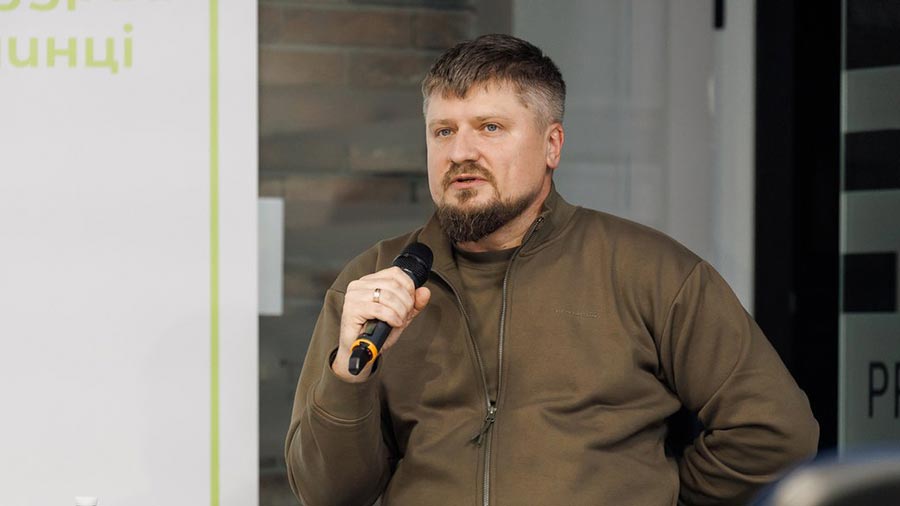
The point of in absentia trials
Who will be tried by the Special Tribunal? This question is related to the leadership element that is present in the definition of the crime of aggression. We are not talking about ordinary military personnel of the Russian Armed Forces. “Only the officials who actually influenced the decision to initiate aggression can be held accountable. Accordingly, they are the leaders in their country who, from a military point of view, lead processes, conduct operations, and those politicians who have a direct influence on such decisions. The circle of persons will be quite limited,” says Leshchenko.
According to Kostin, this group consists of 20 to 30 representatives of the Russian Federation’s top leadership. Obviously, Ukrainians want to see the members of the so-called ‘troika’ [President Vladimir Putin, Foreign Minister Sergey Lavrov, Prime Minister Mikhail Mishustin] in the dock, but they cannot be tried by the Special Tribunal – either in person or in absentia – while they still hold office, the Council of Europe’s Media Department explains. “The Special Tribunal Prosecutor may investigate and even prepare an indictment against members of the ‘troika’, but then the tribunal will suspend its proceedings until the relevant member of the ‘troika’ leaves office,” they say.
The discussion on the clause regarding immunity for senior officials in the Special Tribunal’s statute lasted several years, Kostin explains. “This was indeed one of the most difficult issues that has been debated. It continued while work was underway to prepare an agreement on the Special Tribunal’s creation. But I don’t agree that the tribunal is limited by immunity: it can investigate crimes of aggression without restriction. But the indictment against the head of state, head of government or foreign minister will not be approved by the pre-trial judge and the proceedings will be suspended while that person holds office.”
“So, basically, the Special Tribunal will be able to try in absentia the number 4 [of Russia’s government] and below. This is very important because there is currently no international judicial organ capable of trying Russian senior political and military leaders in absentia. And this, again, is one of the very important features of the tribunal,” says Korynevych. “Of course, it is not for us to determine who the Special Tribunal will hold accountable. That is a matter for the court, and I am confident that the judges of the tribunal will figure it out. I am also absolutely convinced that it will not be just the ‘troika’. It could be several dozen people who are members of the senior political and military leadership of the Russian Federation.”
“We need in absentia proceedings so that we can consider these cases now, at the beginning of the tribunal’s work,” insists Leshchenko, who remains convinced that Ukraine still has a chance to see Putin in the dock. “History shows that sooner or later, most war criminals and persons involved in crimes of aggression end up in the dock and are sentenced,” he believes. Andrii Yakovlev, a lawyer and expert at the Media Initiative for Human Rights, sounds more cautious. “It is very difficult to hold the head of state accountable if the state itself does not want to extradite him or if the state does not help,” he warns.
According to Ukrainian law, Russia began the crime of aggression in February 2014 with the occupation of Crimea, and it continues to this day. But “the Statute of the Special Tribunal does not set any time limits for the crime of aggression,” says Mudra.
The top leadership of Belarus, Iran, and North Korea may also face criminal prosecution in the Special Tribunal for aiding Russia by providing its territory and equipment for strikes against Ukraine. “Belarusian or North Korean individuals could potentially be held accountable. This would be the case if evidence shows that they played a significant role in the crime of aggression against Ukraine,” confirmed the Council of Europe.
This article was produced thanks to a grant by Fondation Hirondelle/Justice Info. The original version was published on November 11, 2025, in "Suspilne".


